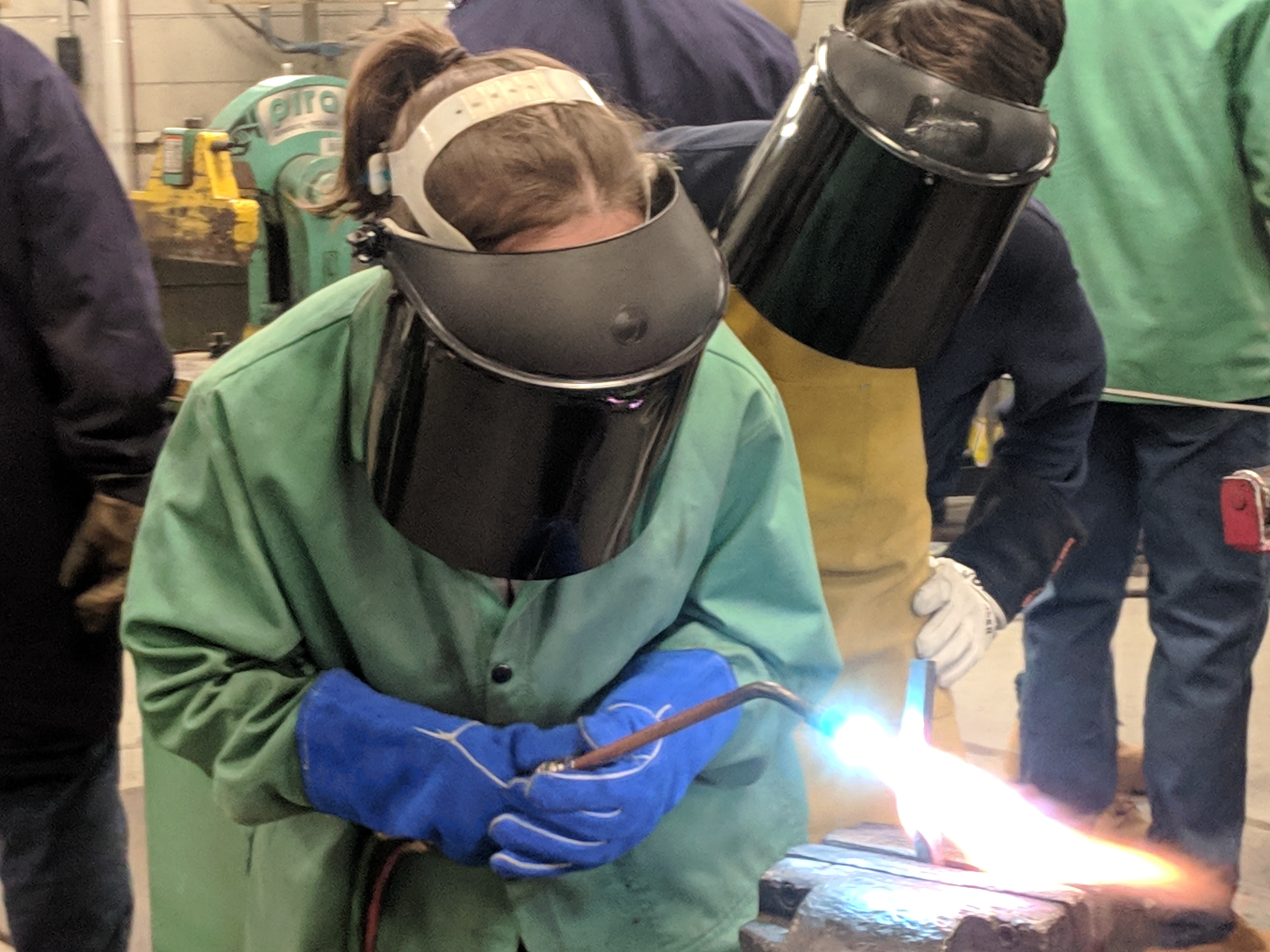Core Courses
Core Courses are designed to provide a detailed introduction to the basic concepts of materials science and engineering. The principles learned in these classes apply to all types of materials and to all kinds of engineering materials problems. These courses are:
- MSE 2610 "Mechanical Properties of Engineering Materials: From Nanodevices to Superstructures"
- MSE 2620 "Electronic Materials for the Information Age"
- MSE 2060 "Atomic and Molecular Structure of Matter"
- MSE 3010 "Chemistry of Materials"
- MSE 3030 "Thermodynamics of Condensed Systems"
- MSE 3040 "Kinetics, Diffusion, and Phase Transformation"
- MSE 3050 "Electronic, Magnetic and Dielectric Properties of Materials"
- MSE 4020 "Mechanical Properties of Materials; Processing and Design"
Laboratory, Research, and Design Courses
Hands-on experience and design are important parts of a materials science and engineering education. Most sophomore courses have laboratory components and all juniors take laboratory and design courses. Seniors may decide between an intensive one-semester laboratory course or a two-semester senior thesis project that involves research sponsored by a faculty member. Seniors must also take a design course either in the fall or spring, with the fall version incorporating multidisciplinary project teams. For a list of related courses, visit the lab, research, and design website.
.jpg) In addition, many undergraduates participate in faculty research projects for academic credit. This provides students with a unique opportunity to put what is learned in the classroom into practice in a lab environment. Among the many benefits of this program are:
In addition, many undergraduates participate in faculty research projects for academic credit. This provides students with a unique opportunity to put what is learned in the classroom into practice in a lab environment. Among the many benefits of this program are:
- Valuable teamwork experience in a world-class research group.
- Practical hands-on knowledge in areas that range from experimental design and project management to interpretation and presentation of results.
- Opportunities to work with state-of-the-art-lab equipment and technology.
- Authoring research publications.
- Filing original ideas as patent disclosures.
Electives
In order to ensure sufficient breadth and depth, the materials science and engineering curriculum requires that students take two materials electives and three materials applications electives, as well as an upper level technical elective.
 The materials electives are:
The materials electives are:
- MSE 4100 "Physical Metallurgy and Applications"
- MSE 4610 "Biomedical Materials and Their Applications"
- MSE 5210 "Properties of Solid Polymers"
- MSE 5310 "Introduction to Ceramics"
- MSE 5320 "Glass: Structure, Properties and Modern Applications"
- MSE 5430 "Thin Film Materials Science"
- MSE 5440 “Soap Bubbles, Snowflakes, and Steps: Interfacial and Surface Phenomena in Materials Science
- MSE 5550 "Introduction to Composites"
The Materials Applications Electives are divided into five categories:
- Biotechnology and Life Sciences
- Energy and the Environment
- Nanotechnology
- Information Science and Technology
- Materials Research
More information about electives, including a list of materials applications electives courses that have been approved in each category can be found on the MSE Electives page.
Requirements
Advanced Math Requirements
At least one elective course must meet the advanced mathematics or computational modeling requirement. The updated list of courses that satisfy this requirement can be found on the MSE Advanced Math page.
 Grade Requirements
Grade Requirements
To obtain an undergraduate degree in materials science and engineering, students must be registered for a minimum of 12 credit hours throughout each term and meet the following conditions for academic good standing:
- Semester GPA >2.0
- Cumulative GPA > 2.3
- At most, one grade as low as C- in the MSE required courses, materials electives, materials applications electives, and the outside technical elective.
For more information about grade, course, and graduation requirements, see the Materials Science and Engineering Graduation Checklist.
Affiliation Requirements
Students typically affiliate with MSE after taking ENGRD/MSE 2610 in the fall of their sophomore year, but may also affiliate after taking ENGRD/MSE 2620 in the spring of their freshman or sophomore year.
Common Curriculum Requirements
The Common Curriculum is taken by all Cornell engineering undergraduates and provides broad exposure to different engineering fields as well as exposure to the social context in which engineering is done via a sequence of liberal studies electives. A complete description of Common Curriculum requirements can be found in the Undergraduate Engineering Handbook.
Honors Thesis
Exemplary materials science and engineering students may graduate with Distinction and/or Honors by fulfilling a number of objectives. In order to be eligible to participate in this major’s Honors Program, students must meet the criteria outlined on the Honors Thesis website.
Minor in Materials Science and Engineering
To successfully complete a minor in materials science and engineering, an undergraduate student must be enrolled in a major that approves participation and meet other requirements outlined on the minor website.
ABET Accreditation
The Department of Materials Science and Engineering offers an accredited engineering B.S. degree. Our major is accredited by the Engineering Accreditation Commission of ABET, https://www.abet.org. More information is available on the ABET Accreditation website.





.jpg) In addition, many undergraduates participate in faculty research projects for academic credit. This provides students with a unique opportunity to put what is learned in the classroom into practice in a lab environment. Among the many benefits of this program are:
In addition, many undergraduates participate in faculty research projects for academic credit. This provides students with a unique opportunity to put what is learned in the classroom into practice in a lab environment. Among the many benefits of this program are: The materials electives are:
The materials electives are: Grade Requirements
Grade Requirements